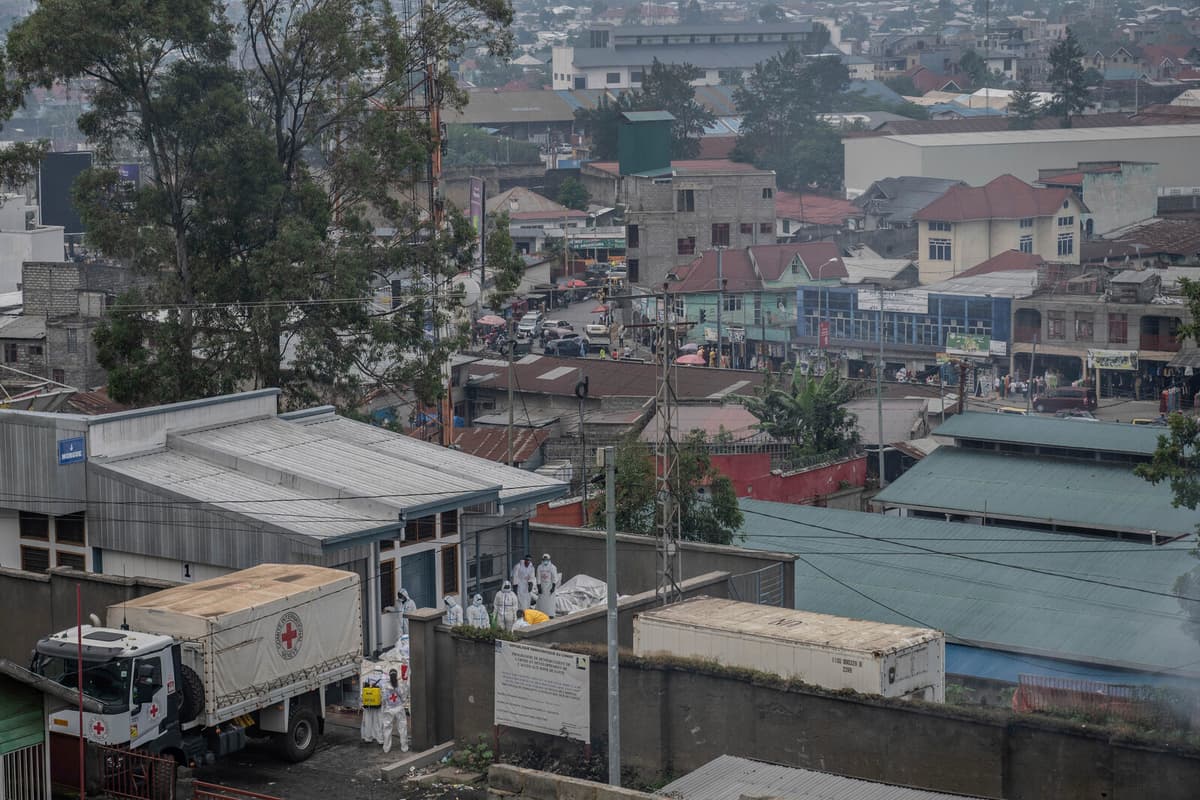At least 900 people have been killed in battles in and around the city of Goma in eastern Congo-Kinshasa since last weekend. Nearly 3,000 have been injured.
The Rwanda-backed rebel group M23 is behind much of the violence, but claims to now temporarily lay down their arms and not, as feared, continue towards another provincial capital, Bukavu, after capturing the million-city Goma.
"It must be clarified that we have no intention of capturing Bukavu or other areas. Instead, we reiterate our previous commitments to protect and defend the civilian population and our positions," says a spokesperson for M23 in a statement.
No Response
However, much remains unclear about the ceasefire, and the government in Kinshasa has not responded to the move.
The UN and several individual countries have urged Rwanda to withdraw the rebels, and the UK has threatened to review its aid. But President Paul Kagame has denied that his government supports M23.
But M23 has, according to the UN, received active support from 4,000 Rwandan soldiers. The group's dramatic incursion into the province of North Kivu on Sunday has triggered a military and diplomatic crisis.
Summit Meeting this Weekend
The rebels claim they are hunting for individuals linked to the 1994 genocide in Rwanda – and are not interested in Congo-Kinshasa's valuable mineral resources.
Hundreds of thousands of people have been forced to flee due to the recent clashes, many of them to Rwanda.
The unexpected announcement of a unilateral ceasefire comes just hours after news that the presidents of Congo-Kinshasa and Rwanda – Felix Tshisekedi and Paul Kagame – are to meet in a regional summit in Tanzania this weekend.
Facts: Congo-Kinshasa
TT
The vast Congo-Kinshasa in Central Africa got its borders during the colonial era – without regard to the inhabitants and the traditional kingdoms that were then forced together.
The country is extremely rich in natural resources, but despite this, poverty has been great both during the colonial era and after independence from Belgium in 1960.
In 1998, war broke out after large numbers of refugees flowed into the country from Rwanda. Hundreds of thousands of people lost their lives, and the civilian population was subjected to horrific abuses.
The war formally ended in 2003, but the struggle for control of the country's vast natural resources has continued and led to new outbreaks of violence at regular intervals, primarily in the eastern parts of the country.
Source: UI/Landguiden






